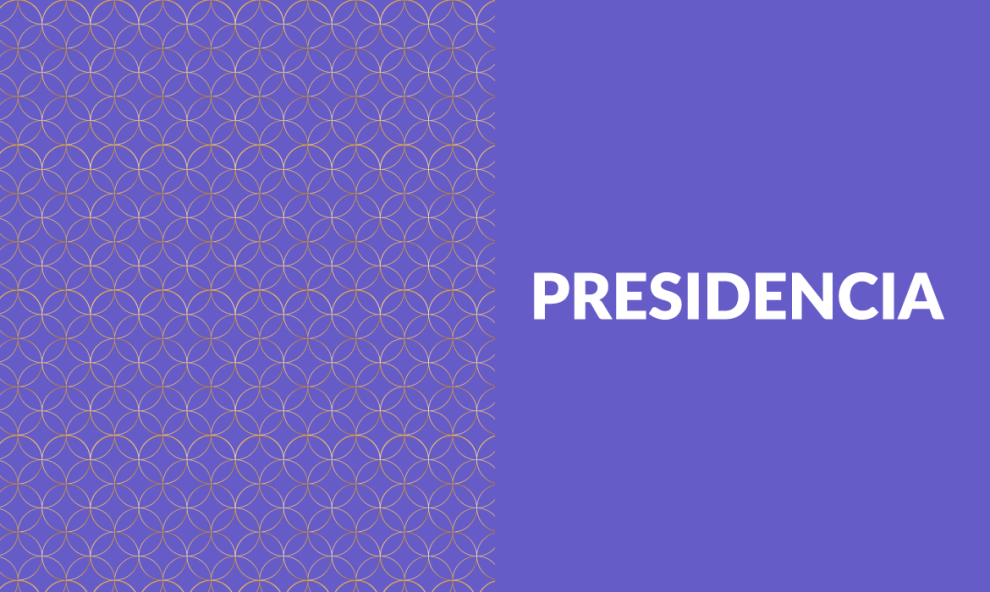I don’t know who’s going to win the presidential fray next year, but I do know that eleven months in these affairs is an eternity. Nothing is written in stone and everything is a possibility. Each party is constructing their options according to their circumstances and peculiarities. It is logical for there to be unity in the PRI because, for its members, a comeback is the only thing that matters. The contrary is true in the PRD, for which its history is more of an obstacle than an asset. It is similarly natural for the PAN to be currently experiencing greatest effervescence because therein we find the combination of the presence of the president with an ample number of presidential hopefuls. At the end of the day, none of this is critical: what is crucial is who will be capable of prevailing over an electorate that is ever more skeptical, and, above all, one that is concentrated not on who it’s going to be, but on what there is to do.
The country finds itself at a crossroads that, however false its essence, dominates political discussion. Fifty years ago, the so-called “stabilizer development” began to take on water: the economy lost dynamism and none of the traditional remedies –spending, inflation, debt, protection, subsidies- resolved the problem. It took us twenty years to understand that it was indispensible to rethink the structure of the economy in order to convert the productive plan into a source of wealth, stability, and development. Many structural changes were effected but there was never a cultural transformation: of beliefs; visions, and conceptions. The result is that many things improved but the country did not change. While exports worked (the essence of the new structure), the economy acquired a respectable but not spectacular dynamism. As soon as the first obstacle appeared (the crisis of 1995), the political debate returned to what it had been: how to close ourselves in; how to protect ourselves; how to restore. The coming presidential match has begun in this same tenor.
The old antidotes and prescriptions do not resolve the problems that affect the population today and can be summed up in three: security; economic growth, and employment. These three themes lie at the heart of the grievances and cannot be worked out with greater authoritarianism, control of the legislature by the presidential party-in-office, or by the presence of an enlightened cacique –a messiah- at the Los Pinos official presidential residence. The country requires a new way of governing itself, a new conception of power, and a competent focus on the current reality for its economic development to ensue. Attempting to restore a past that stopped functioning is absurd and counterproductive. The lesson of the past fifty years is very simple: if we don’t want the same result that we had, we have to do something different. Or, in other words, a stable and viable country cannot be constructed with the authoritarian underpinnings of yesteryear, that is, with the universe of privileges and special benefits that characterize the country today. This contradiction lies at the heart of the discouragement and despair that ails the entire country.
In his book on commercial development in India, Rama Bijapurkar makes reference to a soccer team that is, she observes, expert in “snatching defeat from the jaws of victory”. The same could happen to the PRI in the presidential race or the PRD in Mexico’s Federal District. I have no doubt that, to date, the election is within the PRI’s reach. I also have no doubt that, as with the Indian soccer team, PRI could either win or lose. Different from the hard PRI years, today no one entertains electoral certainties, and in this we have undergone a radical change. Nor is the effect of alliances of the de facto powers with the presidential hopefuls evident: today any one of the three big parties can win. Some of these alliances may in fact be big losers even for the strongest of candidates. The question is what will determine victory or defeat on this occasion.
Achieving victory will necessitate at the very least the conjunction of three factors: credible leadership; a convincing project; and an exceptional organizational structure. Each of the parties and potential candidates brings certain assets to the table, but none satisfies all three. A big media presence in recent years confers some advantages, but certainly is not sufficient. At least between the lines, the surveys reflect a population that is fed up with the lack of options and the absence of a clear course. The old clichés have also become irrelevant and the old song of the rich countries vs. the poor countries is no longer persuasive: today, the wealthy countries are in crisis and the previously poor ones grow in systematic fashion. More importantly, the latter have been able to generate a positive and optimistic spirit and among their citizens. The message is brutal: Mexico must complete its structural and cultural transformation because neither of the two is sufficient in itself. And that will require a credible leader: one capable of convincing the citizenship as well as of building a new track forward. There is not one successful country in the past many decades without competent and intelligent leadership.
But this leadership must also be accompanied by a plan that is convincing in its economic focus as well as in its implementation strategy. Although there are particular nuances and strategies that distinguish what has driven the diverse Asian, Latin-American, and now African, tigers and jaguars to development, the reality is that the path toward development is well-beaten and not greatly given to argument. What is complex is its adoption and implementation. Our problem is that authoritarian societies (like China), democratic societies (like Brazil), and even complex societies (like India) have been able to make advances toward the future, while we remain quagmired in disputes for the démodé power of old. Our challenge is less one of definition than one of instrumentation and that requires a political transformation strategy.
The failure of the last three governments resides essentially in their inability and unwillingness to construct a new political system, streamlined to the circumstances and susceptible of implementing the transformation that the country requires. There has not been clarity of course, leadership, or strategy. The minimum that the citizenry expects is a government capable of creating an environment of security, a government with an integral view of development, and a government with the capacity of carrying this out.
The end of the PRI era left us with an inefficient decision-making system and, in the form of the so-called de facto powers, ennobled a veritable hornet’s nest of entities, groups, unions, and enterprises that have ended up paralyzing the country. The paradox is that we wound up with a structure without democratic checks and balances but with vetoes everywhere. Whatever serious pretension to govern the country starting December 1, 2012 would have to begin by proposing to the electorate a convincing strategy in this dimension and that, in this era, implies not a partisan strategy, but rather a coalition of strengths and capacities: the most experienced and qualified politicians and technocrats with a comprehensive vision for delivering a very successful country at the end of the upcoming presidential term.
The Fray






Comments